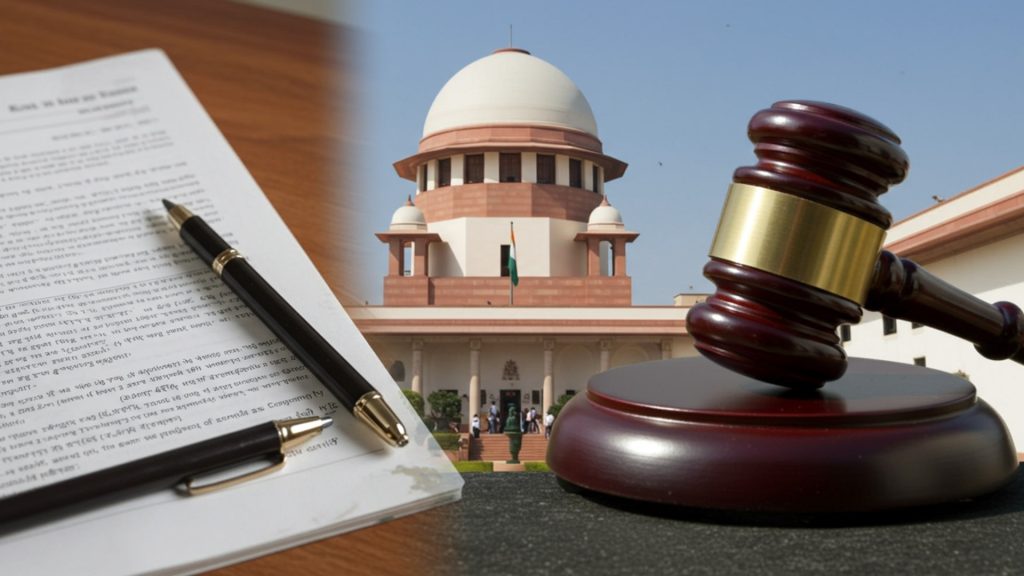In a major decision, the Supreme Court demands public release of all voter names removed from Bihar’s election lists. This urgent order means officials must now show why these names disappeared, a move that pushes for more open and fair voting. The ruling comes as a crucial step for people seeking to interpret the changes to voter rolls, especially with essential elections on the horizon in Bihar.
Top Court Orders Public List of Deleted Bihar Voters
The Supreme Court has directed the Election Commission of India to make public the names of over 65 lakh voters whose names have been removed from the draft electoral roll in Bihar. This vital ruling aims to bring more openness to the voter list revision process. The court has also asked the Election Commission to provide clear reasons for each deletion, such as death, people moving away, or duplicate entries. This data must be easily searchable online for everyone. The court’s order came during its hearing of several petitions that questioned the Election Commission’s process of Special Intensive Revision (SIR) of voter lists in Bihar. This revision is happening before the upcoming elections in the state. Many political parties and individuals had raised concerns, saying that a large number of eligible voters might lose their right to vote because of this revision process.
Understanding the Court’s Decision
The Supreme Court’s decision stressed the need for high levels of clarity in preparing voter lists. Justices Surya Kant and Joymalya Bagchi, who heard the case, observed that removing a citizen’s right to vote has serious effects. They said that a fair process is needed to ensure no one is wrongly removed from the voter list. The court specifically asked for the list of deleted voters to be made available on the websites of all district electoral officers. The court has given clear instructions for how this data should be made public:
- The list must be searchable using a voter’s EPIC (Elector Photo Identity Card) number.
- Each entry on the list must show the specific reason for the name being removed.
- The Election Commission must widely publicise the availability of this list through newspapers, radio, television. social media.
- Printed copies of booth-wise lists of deleted voters, along with reasons, should also be displayed at local offices like panchayat bhavans and block development offices, ensuring people can check manually.
The judges pointed out that citizens should not have to depend on political workers or booth-level agents, who might have their own political views, to find out if their names have been deleted. They said that if the Election Commission is already putting names on display boards, putting them on a website should not be a problem.
“If Poonam Devi has been removed, Poonam Devi must be able to know that she has been removed and why she has been removed,” Justice Surya Kant said during the hearing, highlighting the citizen’s right to details.
Why the Voter List Revision Became a Big Issue
The Special Intensive Revision of electoral rolls in Bihar led to significant debate and concerns among various groups. The process involved a thorough check of the existing voter list to remove names of deceased persons, those who had moved, or duplicate entries. It was revealed in court that about 65 lakh names were not found in the new draft list, even though they were present in the earlier 2025 voter list. Out of these, the Election Commission stated that around 22 lakh deletions were due to voters having passed away. But, the court questioned why this data, especially about deceased voters, was not made public at the local booth level. Opposition parties, including the Rashtriya Janata Dal (RJD) and the Congress, alongside various groups working for democratic rights, had challenged the Election Commission’s decision to conduct this special revision. They raised alarms about the possibility of many genuine voters being left out.
Election Commission’s View on the Process
The Election Commission of India has consistently stated that the preparation of electoral rolls is a very transparent process, involving multiple steps. They have pointed out that political parties are involved at every stage.
“Utmost transparency is the hallmark of electoral roll preparation,” the Election Commission said in a statement. They also mentioned that if political parties or individuals had pointed out errors during the designated time for claims and objections, these issues could have been fixed.
The Election Commission explained that after draft voter lists are made, they are published in both digital and physical forms and shared with all recognized political parties. A month-long period is then given for citizens and parties to submit any claims or objections regarding errors or missing names. The Commission also highlighted that if a person’s name is wrongly deleted due to reasons like death, they can approach election officials to get it corrected. During the court hearings, the Election Commission agreed to adopt the interim measures suggested by the Supreme Court. This shows a step towards addressing the concerns raised about transparency.
What Happens Next for Voters
For those whose names may have been wrongly removed from the voter list, the Supreme Court’s order provides a clear path forward. Aggrieved persons can now easily check the published lists. If their name is missing and they believe it is an error, they can approach Election Commission officials. The court has also clarified that Aadhaar cards, while not a final proof of citizenship, can be submitted by individuals as a document to support their claims for re-inclusion. This is a significant point because earlier concerns had been raised about Aadhaar not being accepted as proof in certain parts of the revision process. The standard procedure for objecting to an entry or seeking deletion or inclusion of a name involves filling out Form 7. This form allows citizens to inform the Electoral Registration Officer if a voter is not eligible to be on the list for reasons such as moving, death, or being registered more than once. The Supreme Court’s order emphasizes making this process easier and more accessible by providing public access to the deleted names and reasons. The Election Commission is now expected to provide a compliance report to the Supreme Court by August 22, detailing how it has implemented these directions. This ongoing monitoring by the highest court aims to ensure that the electoral process remains fair, transparent. upholds the right to vote for all eligible citizens.

